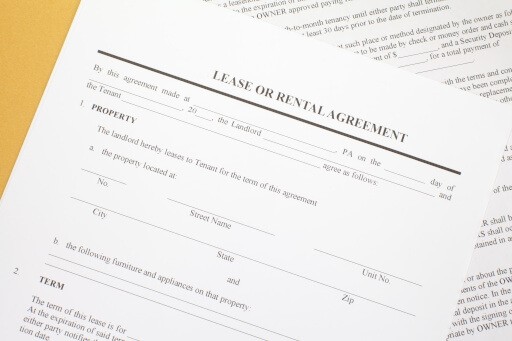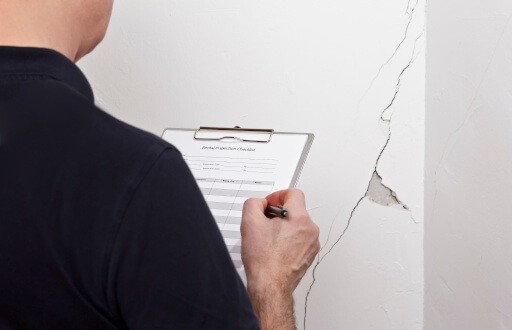Time is money as a landlord, so naturally you want to reduce the time between tenants as much as possible. Managing your vacancies can be a difficult balancing act. Too much time between tenants will start to eat into your profit, and potential renters may be weary of a rental that’s sat on the market for an extended period of time. But if you don’t leave enough time between tenants, you could have a serious situation on your hands if your new tenant is ready to move in and your current tenant still isn’t moved out.
What Is Tenant Overstay?
A tenant overstay simply means that your current tenant, who has not renewed their lease, has stayed past their lease end date. This is also commonly referred to as a holdover tenant. A tenant overstay is most common in a situation where your current tenant has agreed to move out, but unexpected circumstances mean they’re still in the rental when you should be cleaning, repairing, or when the next tenant is supposed to move in.
Should You Let Your Tenant Stay Past the Lease End Date?
What if your current tenant finds out that they will have to move into their new place later than they thought, so instead of leaving your rental on the lease end date, they ask if they can stay an extra day? Whether you agree to let them stay or not is up to you. You obviously don’t want them to be without a home for the night, and there’s a good chance they might just stay anyway.
You may want to ask the new tenant if they can wait an extra day to move in. To make the situation more palatable to the new tenant, you could offer to prorate their rent or pay the movers if there are extra costs involved with rescheduling the move or with storing furniture.
Can You Charge a Tenant for an Overstay?
If you do agree to let a tenant stay an extra day or two because of unforeseen circumstances, whether you can charge them for those extra days depends on your local laws. Typically, if you allow your tenant to stay an extra day the cost would be on you.
If you did not allow your tenant to stay an extra day but they did anyway, you might be able to charge that tenant for that extra day. You probably can’t charge them for another month’s rent, even if they stayed without your permission.
Remedy the Situation with Your New Tenant
Dealing with a tenant overstay can be frustrating, but you really want to concentrate your efforts on placating your new tenant.
Offer them a new unit
If you have another available unit, you can offer that to your new tenant, either as a temporary place for this person to stay until the place they actually rented is available, or as a permanent place for your new tenant to move into instead of the intended one. You will have to modify the lease accordingly.
Offer to pay their expenses
As mentioned above, another option is to offer to pay expenses your tenant incurs as a result of you not having the place ready. Expenses could include a hotel and paying the new tenant’s moving company if they will charge extra for the delay.
Refund their money
If the potential new tenant gets out of the lease because you couldn’t deliver on the property, you’ll have to refund them any of the money they gave you in accordance with signing the lease. This is a baseline procedure for remedying this type of situation.
How to Prevent Tenant Overstays
Allotting at least a week or two between tenants gives you a crucial buffer to handle any maintenance or repairs and sort out any overstay issues. Any longer and you may go an entire month without profit. If your tenant is still in the unit past their lease end date, having a week or so gives your tenant plenty of time to remedy their situation, and it gives you leeway to settle on a removal tactic like cash for keys if need be. If you realize that eviction may be the only option to get your tenant out, it will most likely take much longer, but at least you have a few days to let the tenant who was scheduled to move in know about the overstay issue.
Another way to prevent tenants overstays is to be extremely clear in your lease. Make sure your tenant is clear on what day their lease ends. You should also specify move-in and move-out times in your lease. By removing all ambiguity from the lease, you’ll make it easier for tenants to understand when they need to be out and hopefully prevent minor overstays from happening.
You should also explicitly state your desired notice, whether it be 30 or 60 days. About two months before the lease is set to expire, you should send your tenant a letter asking whether they want to renew the lease or if they plan on leaving. If they say they will not be renewing, it’s a good idea to send them another letter or an email that details what your move-out procedures are, such as having the place as clean as it was when they moved in and how to return the key to you.
To avoid tenants overstaying in the future, you should screen your tenants and ask for references from their previous landlords so you have a better understanding of who they are as a tenant. Apartments.com makes it easy to screen tenants, get the information you need, and find a qualified renter fast. Unlike our competitors, who use various third-party resources to collect information, we partner with TransUnion to provide you with screening reports for evictions, credit, and criminal history. Another feature you’ll find only on Apartments.com is support for co-signers, guarantors, and co-applicants. If you need more information to make a decision, you can request supporting documents from potential tenants directly on our platform. Get all the information you need to find the right tenant quickly and easily.
Dealing with tenants moving in and out of your rental can be quite the juggling act, but it’s something you’ll have to manage efficiently if you want to minimize vacancies in your rental. Start with using clear and concise language in your lease to prevent any confusion about when your current tenant needs to be out, and when your new tenant can move in. Be compassionate when it comes to minor overstays and work with both parties to make sure no one goes without a home for a night or two. But be firm when it comes to a holdover tenant who’s not paying rent. After all, time is money.











